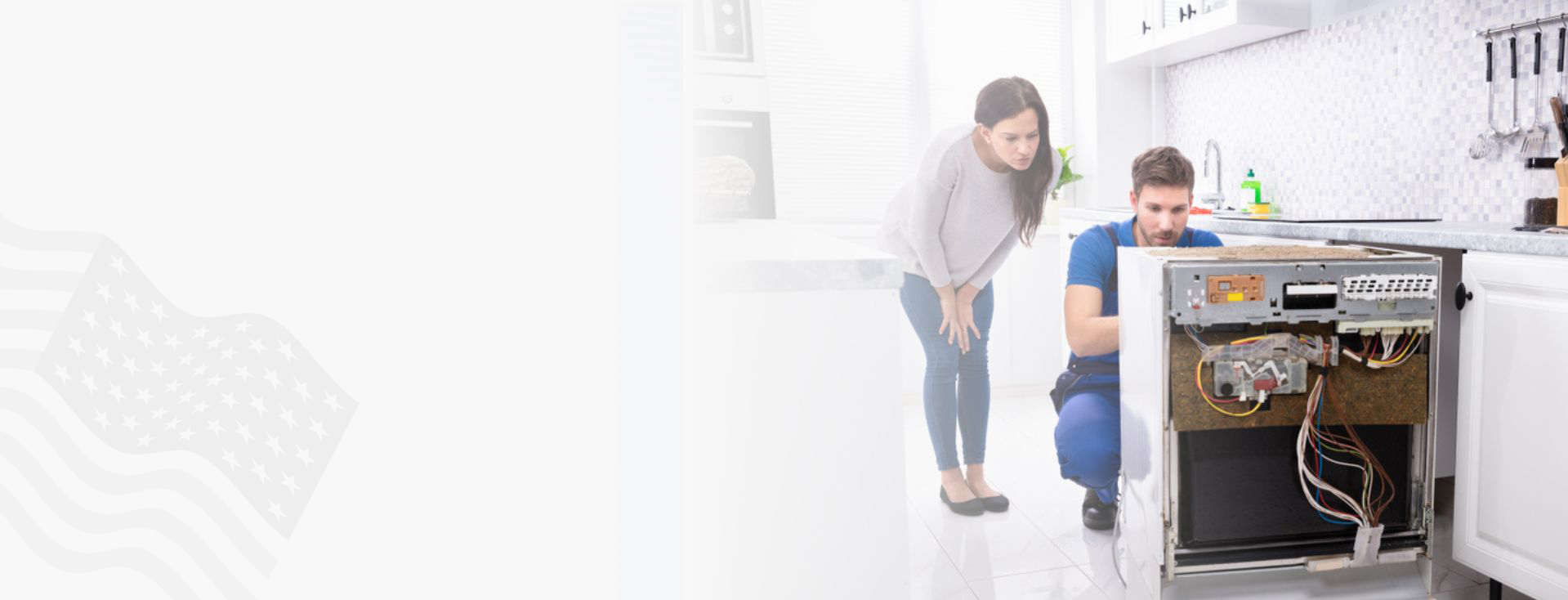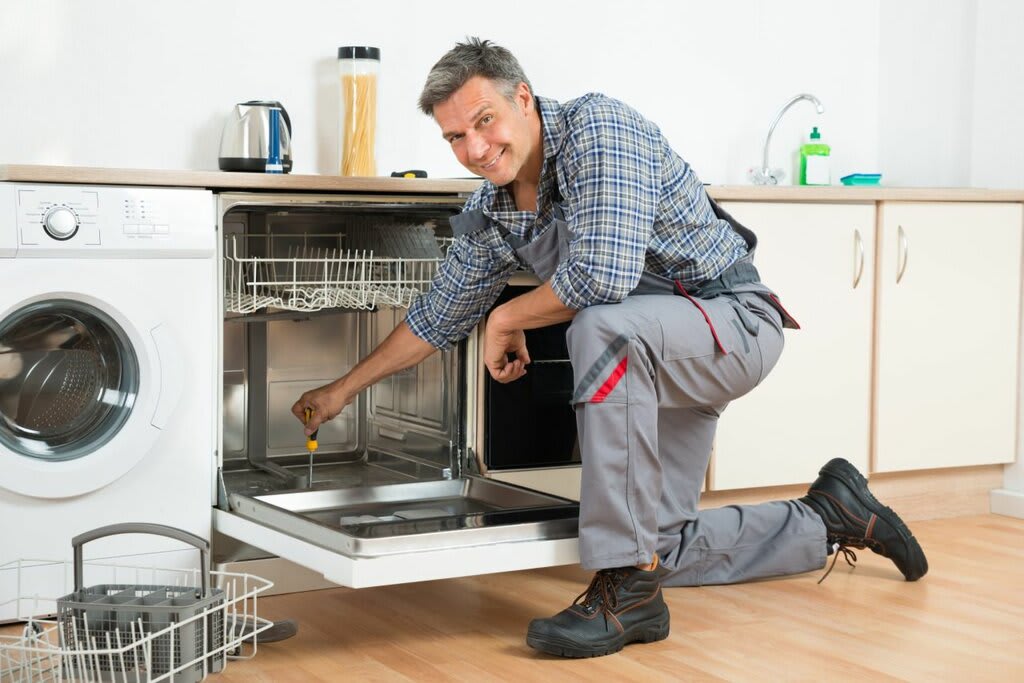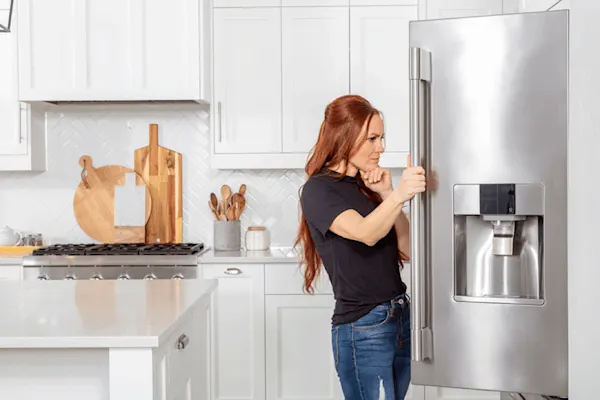The Ultimate Guide to Understanding Device Repair Work in your home
When your fridge stops cooling or your oven rejects to heat, it can feel overwhelming. Recognizing home appliance repair in your home can conserve you time and cash. You'll learn to acknowledge signs, utilize crucial tools, and adhere to a methodical troubleshooting process. However prior to you begin, there are crucial safety and security precautions you require to take into account. What are one of the most usual troubles, and exactly how can you repair them? Let's discover the fundamentals.
Common Device Issues and Their Signs and symptoms
When your appliances begin breaking down, it's vital to acknowledge the indications early on. Disregarding them can cause bigger concerns and costly fixings. If your refrigerator isn't cooling down properly, you could see warm areas or condensation creating. This could suggest a stopping working compressor or a blocked vent.Your dishwasher might show problems through dirty meals or unusual sounds throughout cycles. If you hear grinding or clanking, it's time to investigate.A washing device that won't rotate or drain pipes can leave you with soaked washing, suggesting a stopped up drain or a malfunctioning pump.Lastly, if your stove's temperature seems off or it takes permanently to pre-heat, you could be managing a faulty thermostat. By staying alert to these symptoms, you can address problems before they escalate into significant repairs.
Important Devices for Appliance Repair Work
When you're taking on device repair services at home, having the right devices is vital. Standard hand tools like screwdrivers and pliers will certainly help you disassemble and take care of different appliances, while electrical screening tools guarantee you're functioning securely with circuitry. Allow's go over what you need to get going on your fixing journey.
Basic Hand Tools
Having the right tools is vital for effective device fixing in the house. Start with a trustworthy screwdriver collection, consisting of both flathead and Phillips types, as screws prevail in appliance setting up. Pliers are also crucial; they assist with gripping, twisting, and cutting cords or small components. A pair of needle-nose pliers can get to difficult situations quickly. You'll need a good flexible wrench for tightening up or loosening nuts and bolts. An utility blade is useful for cutting with product packaging or insulation. Finally, don't fail to remember a sturdy workbench or surface to securely arrange your tools and components. With these fundamental hand devices, you'll be well-prepared to take on most device repair work that come your way.
Electric Testing Devices
Together with basic hand tools, electric screening tools play a crucial function in device fixing. These devices aid you identify electrical concerns and guarantee appliances operate securely. A multimeter is crucial; it measures voltage, present, and resistance, allowing you to pinpoint troubles swiftly. A non-contact voltage tester is an additional essential, letting you detect live cords without making straight call, enhancing your security. Clamp meters are fantastic for determining existing circulation in cords without detaching them, conserving you effort and time. Additionally, circuit testers can quickly examine if electrical outlets are working properly. By making use of these devices, you'll streamline your troubleshooting procedure and boost your repair service abilities, making home appliance maintenance a lot simpler.
Step-by-Step Guide to Diagnosing Device Issues
When your device breaks down, it can be frustrating, yet detecting the issue doesn't have to be frustrating. You'll find out to determine typical problems and apply efficient troubleshooting strategies. Let's walk via the steps to get your device back in working order.
Common Device Issues

Fixing Techniques Described

Fixing Significant Kitchen Area Home Appliances: A Closer Look
Have you ever asked yourself how to deal with common concerns with your kitchen home appliances? Fixing significant kitchen area devices like fridges, ovens, and dishwashing machines can be simpler than you believe. Start by identifying the issue-- whether it's a refrigerator not cooling down or a stove that will not heat up. Frequently, a simple reset or inspecting the power source can fix the issue.For fridges, clean the condenser coils and examine the door seals. If your stove's not heating, examine the home heating component and thermostat. Dish washers might just need a clean filter or check over here a reset to get them back in action. Constantly disconnect the device before diving into repairs to ensure your safety.Don' t neglect to consult the individual guidebook for specific troubleshooting ideas connected to your version. With a little bit of patience and the right tools, you can with confidence deal with device repair work and save money while doing so!

Fixing Washing Appliances: Tips and Techniques
When your washing appliances start acting up, it can feel frustrating, yet fixing them doesn't need to be a headache. Beginning by checking the power supply. Validate the device is connected in and the outlet is operating. Next off, inspect the door or lid switch; a faulty switch can avoid the machine from operating.For washers, if it's not rotating, look for unbalanced tons. Redistributing the garments might fix the problem. If your dryer isn't home heating, tidy the dust filter and examine the vent for blockages.Listen for uncommon sounds; they can suggest an issue. If your appliance is dripping, examine the hose pipes for splits or loosened connections. File any error codes presented on electronic screens, as they can lead you in determining the concern. Lastly, speak with the individual guidebook for details repairing ideas connected to your version.
Safety And Security Preventative Measures to Take Throughout Services
Prior to you start any kind of home appliance repair work, it's essential to focus on safety and security to stop crashes or injuries. Unplug the appliance or turn off the circuit breaker to assure no power reaches it while you work. Usage shielded tools to reduce the risk of electrical shock. Wear safety goggles and handwear covers to safeguard yourself from sharp edges or debris (Dependable Refrigeration & Appliance Repair Service Washer repair near me).Make go to website specific your office is tidy and well-lit, so you can see what you're doing. Maintain youngsters and pets far from the area to stay clear of diversions and prospective risks. If you're dealing with gas home appliances, be additional mindful; check for leakages before proceeding.Take your time, and don't hurry through repairs. If you feel uncertain concerning any step, it's better to pause and study than to think. Adhering to these precautions will help produce a more secure setting for your do it yourself appliance repair service job
When to Call an Expert for Assistance
How do you know if it's time to call in a specialist for home appliance repair services? If you've attempted basic troubleshooting without success, it's a clear indicator. If your device still will not begin or shows uncommon sounds after resetting it, don't hesitate to seek professional help.When you discover leaks, smoke, or burning scents, prioritize security and call a pro quickly. These concerns can bring about more considerable damages or pose threats to your home.Also, if your home appliance is under service warranty, speaking to a professional is typically the very best course. They can assure that repair services won't void your guarantee, conserving you cash in the long run.Finally, if you're unsure or awkward with complex repair work, it's smart to leave it to the experts. Keep in mind, taking on challenging concerns without the best competence can cause expensive blunders. Trust fund a specialist when unsure!
Frequently Asked Concerns
Just How Can I Stop Device Problems in the Future?
To stop home appliance troubles in the future, you must execute routine maintenance, look for deterioration, clean filters, and stay clear of overloading. Staying aggressive will certainly help prolong their life expectancy and keep them running efficiently.
What Are the Many Common DIY Home Appliance Repair Work Mistakes?
You might ignore safety precautions, miss fixing steps, or utilize incorrect tools when trying DIY home appliance repair work. Rushing the procedure or neglecting maker guidelines can lead to even more substantial concerns and pricey blunders. Remain client and informed!
Exactly how Do I Know if a Component Needs Substitute?
You can inform if a part requires substitute by looking for uncommon noises, leakages, or inconsistent performance. If the home appliance battles to operate appropriately or shows visible damages, it's most likely time for a substitute.
Can I Utilize Generic Components for Device Repair Works?
Yes, you can make use of common components for appliance fixings, but ascertain they work - Dryer repair Oro Valley Dependable Refrigeration & Appliance Repair Service. Generic components may conserve you money, but they might affect efficiency or durability, so weigh your choices meticulously prior to deciding
What Service Warranties Cover Appliance Fixes?
A lot of home appliance guarantees cover repair work for making flaws, but they often omit damage from misuse. Examine your guarantee terms meticulously, as some might call for making use of licensed professionals and initial parts for coverage to continue to be legitimate.
Comments on “Fix It in 5 Steps – Fixes washers and dryers Oro valley Dependable Appliance Repair”